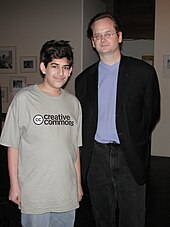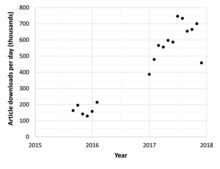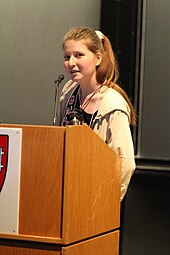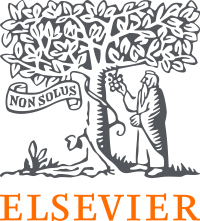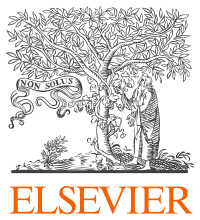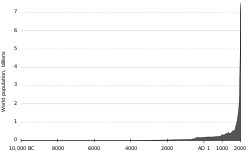Aaron Swartz
| |
|---|---|

Swartz at a meetup in August 2009
| |
| Born |
Aaron Hillel Swartz
November 8, 1986
Highland Park, Illinois, U.S.
|
| Died | January 11, 2013 (aged 26)
Brooklyn, New York City, U.S.
|
| Cause of death | Suicide by hanging |
| Alma mater | Stanford University |
| Occupation | Software developer, writer, internet activist |
| Organization | Creative Commons (development), Reddit (co-founder), Watchdog.net, Open Library, DeadDrop, Progressive Change Campaign Committee, Demand Progress (co-founder), ThoughtWorks, Tor2web |
| Title | Fellow, Harvard University Edmond J. Safra Center for Ethics |
| Awards | ArsDigita Prize (2000) American Library Association's James Madison Award (posthumously) EFF Pioneer Award 2013 (posthumously) Internet Hall of Fame 2013 (posthumously) |
| Website | aaronsw.com |
Aaron Hillel Swartz (November 8, 1986 – January 11, 2013) was an American computer programmer, entrepreneur, writer, political organizer, and Internet hacktivist. He was involved in the development of the web feed format RSS, the Markdown publishing format, the organization Creative Commons, and the website framework web.py, and was a co-founder of the social news site Reddit. He was given the title of co-founder by Y Combinator owner Paul Graham after the formation of Not a Bug, Inc. (a merger of Swartz's project Infogami and Reddit, a company run by Alexis Ohanian and Steve Huffman).
Swartz's work also focused on civic awareness and activism. He helped launch the Progressive Change Campaign Committee in 2009 to learn more about effective online activism. In 2010, he became a research fellow at Harvard University's Safra Research Lab on Institutional Corruption, directed by Lawrence Lessig. He founded the online group Demand Progress, known for its campaign against the Stop Online Piracy Act.
In 2011, Swartz was arrested by Massachusetts Institute of Technology (MIT) police on state breaking-and-entering charges, after connecting a computer to the MIT network in an unmarked and unlocked closet, and setting it to download academic journal articles systematically from JSTOR using a guest user account issued to him by MIT. Federal prosecutors later charged him with two counts of wire fraud and eleven violations of the Computer Fraud and Abuse Act, carrying a cumulative maximum penalty of $1 million in fines, 35 years in prison, asset forfeiture, restitution, and supervised release.
Swartz declined a plea bargain under which he would have served six months in federal prison. Two days after the prosecution rejected a counter-offer by Swartz, he was found dead in his Brooklyn apartment, where he had hanged himself.
In 2013, Swartz was inducted posthumously into the Internet Hall of Fame.
Early life
Swartz in 2002 with Lawrence Lessig at the launch party for Creative Commons
Swartz
describes the nature of the shift from centralized one-to-many systems
to the decentralized many-to-many topology of network communication. San
Francisco, April 2007 (9:29)
Swartz was born in Highland Park, Illinois (a suburb of Chicago), the eldest son of Jewish parents Susan and Robert Swartz and brother of Noah and Benjamin. His father had founded the software firm Mark Williams Company. Swartz immersed himself in the study of computers, programming, the Internet, and Internet culture. He attended North Shore Country Day School, a small private school near Chicago, until 9th grade. Swartz left high school in the 10th grade, and enrolled in courses at Lake Forest College.
In 1999, when he was 13 years old he created the website Theinfo.org, a collaborative online library. Theinfo.org made Swartz the winner of the ArsDigita Prize, given to young people who create "useful, educational, and collaborative" noncommercial websites. At age 14, he became a member of the working group that authored the RSS 1.0 web syndication specification.
Swartz attended Stanford University, but dropped out after his first year.
Entrepreneurship
During Swartz's first year at Stanford, he applied to Y Combinator's very first Summer Founders Program, proposing to work on a startup called Infogami, designed as a flexible content management system to allow the creation of rich and visually interesting websites or a form of wiki for structured data.
After working on Infogami with co-founder Simon Carstensen over the
summer of 2005, Aaron opted not to return to Stanford, choosing instead
to continue to develop and seek funding for Infogami.
As part of his work on Infogami, Swartz created the web.py web application framework because he was unhappy with other available systems in the Python programming language. In early fall of 2005, Swartz worked with his fellow co-founders of another nascent Y-Combinator firm Reddit, to rewrite Reddit's Lisp
codebase using Python and web.py. Although Infogami's platform was
abandoned after Not a Bug was acquired, Infogami's software was used to
support the Internet Archive's Open Library project and the web.py web framework was used as basis for many other projects by Swartz and many others.
When Infogami failed to find further funding, Y-Combinator organizers suggested that Infogami merge with Reddit, which it did in November 2005, resulting in the formation of a new firm, Not a Bug, devoted to promoting both products.
As a result of this merger, Swartz was given the title of co-founder of
Reddit. Although both projects initially struggled to gain traction,
Reddit began to make large gains in popularity in 2005 and 2006.
In October 2006, based largely on the success of Reddit, Not a Bug was acquired by Condé Nast Publications, the owner of Wired magazine. Swartz moved with his company to San Francisco to work on Wired. Swartz found office life uncongenial, and he ultimately left the company.
In September 2007, Swartz joined with Infogami co-founder Simon
Carstensen to launch a new firm, Jottit, in another attempt to create
another markdown driven content management system in Python.
Activism
In 2008, Swartz founded Watchdog.net, "the good government site with teeth," to aggregate and visualize data about politicians. In the same year, he wrote a widely circulated Guerilla Open Access Manifesto. On December 27, 2010, Swartz filed a Freedom of Information Act (FOIA) request to learn about the treatment of Chelsea Manning, alleged source for WikiLeaks.
PACER
In 2008, Swartz downloaded about 2.7 million federal court documents stored in the PACER (Public Access to Court Electronic Records) database managed by the Administrative Office of the United States Courts.
The Huffington Post characterized his actions this way:
"Swartz downloaded public court documents from the PACER system in an
effort to make them available outside of the expensive service. The move
drew the attention of the FBI, which ultimately decided not to press
charges as the documents were, in fact, public."
PACER was charging 8 cents per page for information that Carl Malamud, who founded the nonprofit group Public.Resource.Org, contended should be free, because federal documents are not covered by copyright.
The fees were "plowed back to the courts to finance technology, but the
system [ran] a budget surplus of some $150 million, according to court
reports," reported The New York Times.
PACER used technology that was "designed in the bygone days of screechy
telephone modems ... putting the nation's legal system behind a wall of
cash and kludge."
Malamud appealed to fellow activists, urging them to visit one of 17
libraries conducting a free trial of the PACER system, download court
documents, and send them to him for public distribution.
After reading Malamud's call for action, Swartz used a Perl computer script running on Amazon cloud servers to download the documents, using credentials belonging to a Sacramento library. From September 4 to 20, 2008, it accessed documents and uploaded them to a cloud computing service. He released the documents to Malamud's organization.
On September 29, 2008, the GPO suspended the free trial, "pending an evaluation" of the program. Swartz's actions were subsequently investigated by the FBI. The case was closed after two months with no charges filed.
Swartz learned the details of the investigation as a result of filing a
FOIA request with the FBI and described their response as the "usual
mess of confusions that shows the FBI's lack of sense of humor." PACER still charges per page, but customers using Firefox have the option of saving the documents for free public access with a plug-in called RECAP.
At a 2013 memorial for Swartz, Malamud recalled their work with PACER.
They brought millions of U.S. District Court records out from behind
PACER's "pay wall", he said, and found them full of privacy violations,
including medical records and the names of minor children and
confidential informants.
We sent our results to the Chief Judges of 31 District Courts ... They redacted those documents and they yelled at the lawyers that filed them ... The Judicial Conference changed their privacy rules. ... [To] the bureaucrats who ran the Administrative Office of the United States Courts ... we were thieves that took $1.6 million of their property. So they called the FBI ... [The FBI] found nothing wrong ...
Malamud penned a more detailed account of his collaboration with
Swartz on the Pacer project in an essay that appears on his website.
Writing in Ars Technica, Timothy Lee,
who later made use of the documents obtained by Swartz as a co-creator
of RECAP, offered some insight into discrepancies in reporting on just
how much data Swartz had downloaded: "In a back-of-the-envelope
calculation a few days before the offsite crawl was shut down, Swartz
guessed he got around 25 percent of the documents in PACER. The New York Times
similarly reported Swartz had downloaded "an estimated 20 percent of
the entire database". Based on the facts that Swartz downloaded 2.7
million documents while PACER, at the time, contained 500 million, Lee
concluded that Swartz downloaded less than one percent of the database.
Progressive Change Campaign Committee
In 2009, wanting to learn about effective activism, Swartz helped launch the Progressive Change Campaign Committee.
He wrote on his blog, "I spend my days experimenting with new ways to
get progressive policies enacted and progressive politicians elected."
Swartz led the first activism event of his career with the Progressive
Change Campaign Committee, delivering thousands of "Honor Kennedy"
petition signatures to Massachusetts legislators asking them to fulfill
former Senator Ted Kennedy's last wish by appointing a senator to vote for health care reform.
Demand Progress
In 2010,[54] Swartz co-founded Demand Progress,
a political advocacy group that organizes people online to "take action
by contacting Congress and other leaders, funding pressure tactics, and
spreading the word" about civil liberties, government reform, and other
issues.
During academic year 2010–11, Swartz conducted research studies
on political corruption as a Lab Fellow in Harvard University's Edmond
J. Safra Research Lab on Institutional Corruption.
Author Cory Doctorow, in his novel Homeland,
"drew on advice from Swartz in setting out how his protagonist could
use the information now available about voters to create a grass-roots
anti-establishment political campaign." In an afterword to the novel, Swartz wrote, "these political hacktivist
tools can be used by anyone motivated and talented enough.... Now it's
up to you to change the system. ... Let me know if I can help."
Stopping the Stop Online Piracy Act (SOPA)
Swartz in 2012 protesting against the Stop Online Piracy Act (SOPA)
Swartz was involved in the campaign to prevent passage of the Stop Online Piracy Act
(SOPA), which sought to combat Internet copyright violations but was
criticized on the basis that it would have made it easier for the U.S.
government to shut down web sites accused of violating copyright and
would have placed intolerable burdens on Internet providers.
Following the defeat of the bill, Swartz was the keynote speaker at the
F2C:Freedom to Connect 2012 event in Washington, D.C., on May 21, 2012.
His speech was titled "How We Stopped SOPA" and he informed the
audience:
This bill ... shut down whole websites. Essentially, it stopped Americans from communicating entirely with certain groups....
I called all my friends, and we stayed up all night setting up a website for this new group, Demand Progress, with an online petition opposing this noxious bill.... We [got] ... 300,000 signers.... We met with the staff of members of Congress and pleaded with them.... And then it passed unanimously....
And then, suddenly, the process stopped. Senator Ron Wyden ... put a hold on the bill.
He added, "We won this fight because everyone made themselves the
hero of their own story. Everyone took it as their job to save this
crucial freedom." He was referring to a series of protests against the bill by numerous websites that was described by the Electronic Frontier Foundation as the biggest in Internet history, with over 115,000 sites altering their webpages. Swartz also presented on this topic at an event organized by ThoughtWorks.
Wikipedia
Swartz at 2009 Boston Wikipedia Meetup
Swartz participated in Wikipedia from August 2003. In 2006, he ran unsuccessfully for the Wikimedia Foundation's Board of Trustees.
In 2006, Swartz wrote an analysis of how Wikipedia articles are
written, and concluded that the bulk of the actual content comes from
tens of thousands of occasional contributors, or "outsiders", each of
whom made few other contributions to the site, while a core group of 500
to 1,000 regular editors tend to correct spelling and other formatting
errors. According to Swartz: "the formatters aid the contributors, not the other way around."
His conclusions, based on the analysis of edit histories of several
randomly selected articles, contradicted the opinion of Wikipedia
co-founder Jimmy Wales,
who believed the core group of regular editors were providing most of
the content while thousands of others contributed to formatting issues.
Swartz came to his conclusions by counting the total number of
characters added by an editor to a particular article, while Wales
counted the total number of edits.
United States v. Aaron Swartz case
According to state and federal authorities, Swartz used JSTOR, a digital repository, to download a large number of academic journal
articles through MIT's computer network over the course of a few weeks
in late 2010 and early 2011. At the time, Swartz was a research fellow
at Harvard University, which provided him with a JSTOR account. Visitors to MIT's "open campus" were authorized to access JSTOR through its network.
The authorities said Swartz downloaded the documents through a laptop connected to a networking switch in a controlled-access wiring closet at MIT. The door to the closet was kept unlocked, according to press reports.
When discovered, a video camera was placed in the room to film Swartz
and his computer was left untouched. Once a video of Swartz was
recorded, the download was stopped and he was identified. Rather than
pursue a civil lawsuit against him, in June 2011 they reached a
settlement wherein he surrendered the downloaded data.
Response from JSTOR
On September 25, 2010, the IP address
18.55.6.215, part of the MIT network, began sending hundreds of PDF
download requests per minute and was affecting the performance of the
entire JSTOR site.
This prompted a block of the IP address. In the morning, another IP
address, also from within the MIT network, began sending JSTOR more PDF
download requests, resulting in a temporary full block on the firewall level of all MIT servers in the entire 18.0.0.0/8 range. An email was then sent to MIT, describing the situation:
From an email sent on September 29, 2010, one JSTOR employee wrote to MIT:
note that this was an extreme case. We typically suspend just one individual IP at a time and do that relatively infrequently (perhaps 6 on a busy day, from 7000+ institutional subscribers). In this case, we saw a performance hit on the live site, which I have only seen about 3 or 4 times in my 5 years here. The pattern used was to create a new session for each PDF download or every few, which was terribly efficient, but not terribly subtle. In the end, we saw over 200K sessions in one hour's time during the peak.
— NAME REDACTED, JSTOR
On July 30, 2013, JSTOR released 300 partially redacted documents,
which had been provided as incriminating evidence against Aaron Swartz.
These documents were originally sent to the United States Attorney's
Office in response to subpoenas in the case United States v. Aaron Swartz.
Arrest and prosecution
On the night of January 6, 2011, Swartz was arrested near the Harvard campus by MIT police and a United States Secret Service agent. He was arraigned in Cambridge District Court on two state charges of breaking and entering with intent to commit a felony.
On July 11, 2011, Swartz was indicted by a federal grand jury on charges of wire fraud, computer fraud, unlawfully obtaining information from a protected computer, and recklessly damaging a protected computer.
On November 17, 2011, Swartz was indicted by a Middlesex County
Superior Court grand jury on state charges of breaking and entering with
intent, grand larceny, and unauthorized access to a computer network. On December 16, 2011, state prosecutors filed a notice that they were dropping the two original charges; the charges listed in the November 17, 2011, indictment were dropped on March 8, 2012.
According to a spokesperson for the Middlesex County prosecutor, the
state charges were dropped to permit a federal prosecution headed by Stephen P. Heymann and supported by evidence provided by Secret Service agent Michael S. Pickett to proceed unimpeded.
On September 12, 2012, federal prosecutors filed a superseding
indictment adding nine more felony counts, which increased Swartz's
maximum criminal exposure to 50 years of imprisonment and $1 million in
fines.
During plea negotiations with Swartz's attorneys, the prosecutors
offered to recommend a sentence of six months in a low-security prison,
if Swartz would plead guilty to 13 federal crimes. Swartz and his lead
attorney rejected that deal, opting instead for a trial in which
prosecutors would have been forced to justify their pursuit of Swartz.
The federal prosecution involved what was characterized by numerous critics (such as former Nixon White House counsel John Dean) as an "overcharging"
13-count indictment and "overzealous" prosecution for alleged computer
crimes, brought by then U.S. Attorney for Massachusetts Carmen Ortiz.
Swartz died of suicide on January 11, 2013. After his death, federal prosecutors dropped the charges. On December 4, 2013, due to a Freedom of Information Act suit by the investigations editor of Wired
magazine, several documents related to the case were released by the
Secret Service, including a video of Swartz entering the MIT network
closet.
Death, funeral, and memorial gatherings
Death
On the evening of January 11, 2013, Swartz's girlfriend, Taren Stinebrickner-Kauffman, found him dead in his Brooklyn apartment. A spokeswoman for New York's Medical Examiner reported that he had hanged himself. No suicide note was found.
Swartz's family and his partner created a memorial website on which
they issued a statement, saying: "He used his prodigious skills as a
programmer and technologist not to enrich himself but to make the
Internet and the world a fairer, better place."
Days before Swartz's funeral, Lawrence Lessig eulogized his friend and sometime-client in an essay, Prosecutor as Bully. He decried the disproportionality
of Swartz's prosecution and said, "The question this government needs
to answer is why it was so necessary that Aaron Swartz be labeled a
'felon'. For in the 18 months of negotiations, that was what he was not
willing to accept." Cory Doctorow
wrote, "Aaron had an unbeatable combination of political insight,
technical skill, and intelligence about people and issues. I think he
could have revolutionized American (and worldwide) politics. His legacy
may still yet do so."
Funeral and memorial gatherings
Swartz's funeral services were held on January 15, 2013, at Central Avenue Synagogue in Highland Park, Illinois. Tim Berners-Lee, creator of the World Wide Web, delivered a eulogy. The same day, The Wall Street Journal published a story based in part on an interview with Stinebrickner-Kauffman. She told the Journal
that Swartz lacked the money to pay for a trial and "it was too hard
for him to ... make that part of his life go public" by asking for help.
He was also distressed, she said, because two of his friends had just
been subpoenaed and because he no longer believed that MIT would try to stop the prosecution.
Several memorials followed soon afterward. On January 19, hundreds attended a memorial at the Cooper Union, speakers at which included Stinebrickner-Kauffman, open source advocate Doc Searls, Creative Commons' Glenn Otis Brown, journalist Quinn Norton, Roy Singham of ThoughtWorks, and David Segal of Demand Progress. On January 24, there was a memorial at the Internet Archive with speakers including Stinebrickner-Kauffman, Alex Stamos, Brewster Kahle, and Carl Malamud. On February 4, a memorial was held in the Cannon House Office Building on Capitol Hill; speakers at this memorial included Senator Ron Wyden and Representatives Darrell Issa, Alan Grayson, and Jared Polis, and other lawmakers in attendance included Senator Elizabeth Warren and Representatives Zoe Lofgren and Jan Schakowsky. A memorial also took place on March 12 at the MIT Media Lab.
Swartz's family recommended GiveWell
for donations in his memory, an organization that Swartz admired, had
collaborated with and was the sole beneficiary of his will.
Response
Family response
Aaron's death is not simply a personal tragedy. It is the product of a criminal justice system rife with intimidation and prosecutorial overreach. Decisions made by officials in the Massachusetts U.S. Attorney's office and at MIT contributed to his death.—Statement by family and partner of Aaron Swartz[125]
On January 12, 2013, Swartz's family and partner issued a statement criticizing the prosecutors and MIT.[125]
Speaking at his son's funeral on January 15, Robert Swartz said, "Aaron
was killed by the government, and MIT betrayed all of its basic
principles."[126]
Tom Dolan, husband of U.S. Attorney for Massachusetts Carmen Ortiz,
whose office prosecuted Swartz's case, replied with criticism of the
Swartz family: "Truly incredible that in their own son's obit they blame
others for his death and make no mention of the 6-month offer." This comment triggered some criticism; Esquire writer Charlie Pierce
replied, "the glibness with which her husband and her defenders toss
off a 'mere' six months in federal prison, low-security or not, is a
further indication that something is seriously out of whack with the way
our prosecutors think these days."
MIT
MIT maintains an open-campus policy along with an "open network." Two days after Swartz's death, MIT President L. Rafael Reif commissioned professor Hal Abelson to lead an analysis of MIT's options and decisions relating to Swartz's "legal struggles."
To help guide the fact-finding stage of the review, MIT created a
website where community members could suggest questions and issues for
the review to address.
Swartz's attorneys requested that all pretrial discovery documents be made public, a move which MIT opposed. Swartz allies have criticized MIT for its opposition to releasing the evidence without redactions.
On July 26, 2013, the Abelson panel submitted a 182-page report to MIT
president, L. Rafael Reif, who authorized its public release on July 30.
The panel reported that MIT had not supported charges against Swartz
and cleared the institution of wrongdoing. However, its report also
noted that despite MIT's advocacy for open access
culture at the institutional level and beyond, the university never
extended that support to Swartz. The report revealed, for example, that
while MIT considered the possibility of issuing a public statement about
its position on the case, such a statement never materialized.
Press
Aaron Swartz mural by Brooklyn graffiti artist BAMN
The Huffington Post
reported that "Ortiz has faced significant backlash for pursuing the
case against Swartz, including a petition to the White House to have her
fired." Other news outlets reported similarly.
Reuters
news agency called Swartz "an online icon" who "help[ed] to make a
virtual mountain of information freely available to the public,
including an estimated 19 million pages of federal court documents." The Associated Press
(AP) reported that Swartz's case "highlights society's uncertain,
evolving view of how to treat people who break into computer systems and
share data not to enrich themselves, but to make it available to
others," and that JSTOR's lawyer, former U.S. Attorney for the Southern District of New York Mary Jo White, had asked the lead prosecutor to drop the charges.
As discussed by editor Hrag Vartanian in Hyperallergic, Brooklyn, New York, muralist BAMN ("By Any Means Necessary") created a mural of Swartz.
"Swartz was an amazing human being who fought tirelessly for our right
to a free and open Internet," the artist explained. "He was much more
than just the 'Reddit guy'."
Speaking on April 17, 2013, Yuval Noah Harari described Swartz as "the first martyr of the Freedom of Information movement."
Aaron Swartz's legacy has been reported as strengthening the open access
to scholarship movement. In Illinois, his home state, Swartz's
influence led state university faculties to adopt policies in favor of
open access.
Internet
Hacks
On January 13, 2013, members of Anonymous
hacked two websites on the MIT domain, replacing them with tributes to
Swartz that called on members of the Internet community to use his death
as a rallying point for the open access movement. The banner included a list of demands for improvements in the U.S. copyright system, along with Swartz's Guerilla Open Access Manifesto. On the night of January 18, 2013, MIT's e-mail system was taken offline for ten hours. On January 22, e-mail sent to MIT was redirected by hackers Aush0k and TibitXimer to the Korea Advanced Institute of Science & Technology.
All other traffic to MIT was redirected to a computer at Harvard
University that was publishing a statement headed "R.I.P Aaron Swartz," with text from a 2009 posting by Swartz, accompanied by a chiptune version of "The Star-Spangled Banner". MIT regained full control after about seven hours. In the early hours of January 26, 2013, the U.S. Sentencing Commission website, USSC.gov, was hacked by Anonymous. The home page was replaced with an embedded YouTube video, Anonymous Operation Last Resort. The video statement said Swartz "faced an impossible choice". A hacker downloaded "hundreds of thousands" of scientific-journal
articles from a Swiss publisher's website and republished them on the
open Web in Swartz's honor a week before the first anniversary of his
death.
Petition to the White House
After Swartz's death, more than 50,000 people signed an online petition to the White House calling for the removal of Ortiz, "for overreach in the case of Aaron Swartz." A similar petition was submitted calling for prosecutor Stephen Heymann's firing. In January 2015, two years after Swartz's death, the White House declined both petitions.
Commemorations
On August 3, 2013, Swartz was posthumously inducted into the Internet Hall of Fame. There was a hackathon held in Swartz' memory around the date of his birthday in 2013.
Over the weekend of November 8–10, 2013, inspired by Swartz's work and
life, a second annual hackathon was held in at least 16 cities around
the world. Preliminary topics worked on at the 2013 Aaron Swartz Hackathon were privacy and software tools, transparency, activism, access, legal fixes, and a low-cost book scanner. In January 2014, Lawrence Lessig led a walk across New Hampshire in honor of Swartz, rallying for campaign finance reform.
In 2017 the Turkish-Dutch artist Ahmet Öğüt commemorated Swartz through a work entitled "Information Power to The People" and depicting his bust.
A sculpture of Aaron Swartz entitled "Information Power to The People" created by Ahmet Öğüt
Legacy
Open Access
A long-time supporter of open access, Swartz wrote in his Guerilla Open Access Manifesto:
The world's entire scientific ... heritage ... is increasingly being digitized and locked up by a handful of private corporations....
The Open Access Movement has fought valiantly to ensure that scientists do not sign their copyrights away but instead ensure their work is published on the Internet, under terms that allow anyone to access it.
Supporters of Swartz responded to news of his death with an effort called #PDFTribute to promote Open Access. On January 12, Eva Vivalt, a development economist at the World Bank, began posting her academic articles online using the hashtag #pdftribute as a tribute to Swartz. Scholars posted links to their works. The story of Aaron Swartz has exposed the topic of open access to scientific publications to wider audiences. In the wake of Aaron Swartz, many institutions and personalities have campaigned for open access to scientific knowledge. Swartz's death prompted calls for more open access to scholarly data (e.g., open science data). The Think Computer Foundation and the Center for Information Technology Policy (CITP) at Princeton University announced scholarships awarded in memory of Aaron Swartz. In 2013, Swartz was posthumously awarded the American Library Association's James Madison Award
for being an "outspoken advocate for public participation in government
and unrestricted access to peer-reviewed scholarly articles." In March, the editor and editorial board of the Journal of Library Administration resigned en masse, citing a dispute with the journal's publisher, Routledge.
One board member wrote of a "crisis of conscience about publishing in a
journal that was not open access" after the death of Aaron Swartz. In 2002, Swartz had stated that when he died, he wanted all the contents of his hard drives made publicly available. The "cOAlition S", a consortium launched by the European Research Council
continues the fight of Aaron Swartz with the will to make available to
all by 2020 all the scientific publications financed by the member
states of this coalition.
Congress
Several members of the U.S. House of Representatives – Republican Darrell Issa and Democrats Jared Polis and Zoe Lofgren – all on the House Judiciary Committee,
have raised questions regarding the government's handling of the case.
Calling the charges against him "ridiculous and trumped up," Polis said
Swartz was a "martyr", whose death illustrated the need for Congress to
limit the discretion of federal prosecutors. Speaking at a memorial for Swartz on Capitol Hill, Issa said
Ultimately, knowledge belongs to all the people of the world.... Aaron understood that.... Our copyright laws were created for the purpose of promoting useful works, not hiding them.
Massachusetts Democratic Senator Elizabeth Warren
issued a statement saying "[Aaron's] advocacy for Internet freedom,
social justice, and Wall Street reform demonstrated ... the power of his
ideas ..." In a letter to Attorney General Eric Holder, Texas Republican Senator John Cornyn
asked, "On what basis did the U.S. Attorney for the District of
Massachusetts conclude that her office's conduct was 'appropriate'?" and
"Was the prosecution of Mr. Swartz in any way retaliation for his
exercise of his rights as a citizen under the Freedom of Information
Act?"
Congressional investigations
Issa, who chaired the House Committee on Oversight and Government Reform, announced that he would investigate the Justice Department's actions in prosecuting Swartz. In a statement to The Huffington Post,
he praised Swartz's work toward "open government and free access to the
people." Issa's investigation has garnered some bipartisan support.
On January 28, 2013, Issa and ranking committee member Elijah Cummings published a letter to U.S. Attorney General Holder, questioning why federal prosecutors had filed the superseding indictment. On February 20, WBUR
reported that Ortiz was expected to testify at an upcoming Oversight
Committee hearing about her office's handling of the Swartz case. On February 22, Associate Deputy Attorney General Steven Reich conducted a briefing for congressional staffers involved in the investigation. They were told that Swartz's Guerilla Open Access Manifesto played a role in prosecutorial decision-making.
Congressional staffers left this briefing believing that prosecutors
thought Swartz had to be convicted of a felony carrying at least a short
prison sentence in order to justify having filed the case against him
in the first place.
Excoriating the Department of Justice as the "Department of Vengeance", Stinebrickner-Kauffman told the Guardian that the DOJ had erred in relying on Swartz's Guerilla Open Access Manifesto
as an accurate indication of his beliefs by 2010. "He was no longer a
single issue activist," she said. "He was into lots of things, from
healthcare, to climate change to money in politics."
On March 6, Holder testified before the Senate Judiciary Committee that the case was "a good use of prosecutorial discretion."
Stinebrickner-Kauffman issued a statement in reply, repeating and
amplifying her claims of prosecutorial misconduct. Public documents, she
wrote, reveal that prosecutor Stephen Heymann "instructed the Secret
Service to seize and hold evidence without a warrant... lied to the
judge about that fact in written briefs... [and] withheld exculpatory
evidence... for over a year," violating his legal and ethical
obligations to turn such evidence over to the defense. On March 22, Senator Al Franken
wrote Holder a letter expressing concerns, writing that "charging a
young man like Mr. Swartz with federal offenses punishable by over 35
years of federal imprisonment seems remarkably aggressive – particularly
when it appears that one of the principal aggrieved parties ... did not
support a criminal prosecution."
Amendment to Computer Fraud and Abuse Act
In 2013, Rep. Zoe Lofgren (D-Calif.) introduced a bill, Aaron's Law (H.R. 2454, S. 1196) to exclude terms of service violations from the 1986 Computer Fraud and Abuse Act and from the wire fraud statute.
Lawrence Lessig wrote of the bill, "this is a critically
important change.... The CFAA was the hook for the government's
bullying.... This law would remove that hook. In a single line: no
longer would it be a felony to breach a contract."
Professor Orin Kerr, a specialist in the nexus between computer law and
criminal law, wrote that he had been arguing for precisely this sort of
reform of the Act for years. The ACLU, too, has called for reform of the CFAA to "remove the dangerously broad criminalization of online activity." The EFF has mounted a campaign for these reforms. Lessig's inaugural Chair lecture as Furman Professor of Law and Leadership was entitled Aaron's Laws: Law and Justice in a Digital Age; he dedicated the lecture to Swartz.
The Aaron's Law bill stalled in committee. Brian Knappenberger alleges this was due to Oracle Corporation's financial interest in maintaining the status quo.
Fair Access to Science and Technology Research Act
The Fair Access to Science and Technology Research Act
(FASTR) is a bill that would mandate earlier public release of
taxpayer-funded research. FASTR has been described as "The Other Aaron's
Law."
Senator Ron Wyden (D-Ore.) and Senator John Cornyn (R-Tex.)
introduced the Senate version, in 2013 and again in 2015, while the bill
was introduced to the House by Reps. Zoe Lofgren (D-Calif.), Mike Doyle (D-Pa.) and Kevin Yoder
(R-Kans.). Senator Wyden wrote of the bill, "the FASTR act provides
that access to taxpayer funded research should never be hidden behind a
paywall."
While the legislation had not passed as of October 2015, it
helped to prompt some motion toward more open access on the part of the
US administration. Shortly after the bill's original introduction, the Office of Science and Technology Policy
directed "each Federal agency with over $100 million in annual conduct
of research and development expenditures to develop a plan to support
increased public access to the results of research funded by the Federal
Government."
Media
Swartz has been featured in various works of art and has posthumously received dedications from numerous artists. In 2013, Kenneth Goldsmith dedicated his "Printing out the Internet" exhibition to Swartz. The fate of Aaron Swartz was also featured in conservative filmmaker Dinesh D'Souza's 2014 documentary America: Imagine the World Without Her, wherein D'Souza compares Swartz's prosecution to his own conviction for violating campaign finance laws, and alleges that both cases exemplify selective, overzealous prosecution. There are also dedicated biographical films for Aaron:
The Internet's Own Boy: The Story of Aaron Swartz
On January 11, 2014, marking the first anniversary of his death, a preview was released of The Internet's Own Boy: The Story of Aaron Swartz, a documentary about Swartz, the NSA and SOPA. The film was officially released at the January 2014 Sundance Film Festival. Democracy Now! covered the release of the documentary, as well as Swartz's life and legal case, in a sprawling interview with director Brian Knappenberger, Swartz's father, brother, and his attorney. The documentary is released under a Creative Commons License; it debuted in theaters and on-demand in June 2014.
Mashable called the documentary "a powerful homage to Aaron Swartz". Its debut at Sundance received a standing ovation. Mashable printed, "With the help of experts, The Internet's Own Boy makes a clear argument: Swartz unjustly became a victim of the rights and freedoms for which he stood." The Hollywood Reporter
described it as a "heartbreaking" story of a "tech wunderkind
persecuted by the US government", and a must-see "for anyone who knows
enough to care about the way laws govern information transfer in the
digital age".
Killswitch
In October 2014, Killswitch, a film featuring Aaron Swartz, as well as Lawrence Lessig, Tim Wu, and Edward Snowden, received its world premiere at the Woodstock Film Festival, where it won the award for Best Editing. The film focuses on Swartz's role in advocating for internet freedoms.
In February 2015, Killswitch was invited to screen at the Capitol Visitor's Center in Washington, D.C. by Congressman Alan Grayson. The event was held on the eve of the Federal Communications Commission's historic decision on Net Neutrality. Congressman Grayson, Lawrence Lessig, and Free Press CEO Craig Aaron spoke about Swartz and his fight on behalf of a free and open Internet at the event.
Congressman Grayson states that Killswitch is "one of the most honest accounts of the battle to control the Internet – and access to information itself." Richard von Busack of the Metro Silicon Valley writes of Killswitch, "Some of the most lapidary use of found footage this side of The Atomic Café". Fred Swegles of the Orange County Register remarks, "Anyone who values unfettered access to online information is apt to be captivated by Killswitch, a gripping and fast-paced documentary." Kathy Gill of GeekWire asserts that "Killswitch
is much more than a dry recitation of technical history. Director Ali
Akbarzadeh, producer Jeff Horn, and writer Chris Dollar created a
human-centered story. A large part of that connection comes from Lessig
and his relationship with Swartz."
Other films
Patriot of the Web is an independent biographical film about Aaron Swartz, written and directed by Darius Burke. The film was released on September 15, 2019 onto YouTube. Actor Shawn Mcclintock plays Aaron Swartz. The film had a limited video on demand release in December 2017 on Reelhouse and in January 2018 on Pivotshare.
Another biographical film about Swartz, Think Aaron, is being developed by HBO Films.
Works
Specifications
- Markdown: Swartz was a major contributor to John Gruber's Markdown, a lightweight markup language for generating HTML, and author of its html2text translator. The syntax for Markdown was influenced by Swartz's earlier atx language (2002), which today is primarily remembered for its syntax for specifying headers, known as atx-style headers: Markdown itself remains in widespread use, with websites such as Reddit and GitHub using it.
- RDF/XML at W3C: In 2001, Swartz joined the RDFCore working group at the World Wide Web Consortium (W3C), where he authored RFC 3870, Application/RDF+XML Media Type Registration. The document described a new media type, "RDF/XML", designed to support the Semantic Web.
Software
- DeadDrop: In 2011–2012, Swartz, Kevin Poulsen, and James Dolan designed and implemented DeadDrop, a system that allows anonymous informants to send electronic documents without fear of disclosure. In May 2013, the first instance of the software was launched by The New Yorker under the name Strongbox. The Freedom of the Press Foundation has since taken over development of the software, which has been renamed SecureDrop.
- Tor2web: In 2008, Swartz worked with Virgil Griffith to design and implement Tor2web, an HTTP proxy for Tor-hidden services. The proxy was designed to provide easy access to Tor from a basic web browser. The software is now maintained by Giovanni Pellerano within the GlobaLeaks project.
Publication
- Swartz, Aaron; Lucchese, Adriano (November 2014). "Raw Thought, Raw Nerve: Inside the Mind of Aaron Swartz" (
 PDF/ePub). New York City: Discovery Publisher.
PDF/ePub). New York City: Discovery Publisher. - Swartz, Aaron; Hendler, James (October 2001). "The Semantic Web: A network of content for the digital city". Proceedings of the Second Annual Digital Cities Workshop. Kyoto, JP: Blogspace.
- Swartz, Aaron (January–February 2002). "MusicBrainz: A Semantic Web service" (PDF). IEEE Intelligent Systems. 17 (1): 76–77. CiteSeerX 10.1.1.380.9338. doi:10.1109/5254.988466. ISSN 1541-1672.
- Gruber, John; Swartz, Aaron (December 2004). "Markdown definition". Daring Fireball. Archived from the original on April 2, 2004.
- Swartz, Aaron (July 2008). "Guerilla Open Access Manifesto".
- Swartz, Aaron; Hendler, James (2009). Building programmable Web sites. S.F.: Morgan & Claypool. ISBN 978-1-59829-920-5.
- Swartz, Aaron (Interviewee). We can change the world (Video) – via YouTube.
- Swartz, Aaron (Speaker) (May 21, 2012). Keynote address at Freedom To Connect 2012: How we stopped SOPA (Video). D.C. – via YouTube.
- Swartz, Aaron (February 2013) [2009]. "Aaron Swartz's A Programmable Web: An Unfinished Work". Synthesis Lectures on the Semantic Web: Theory and Technology (
 PDF). Morgan & Claypool Publishers. 3 (2): 1–64. doi:10.2200/S00481ED1V01Y201302WBE005. Lay summary.
PDF). Morgan & Claypool Publishers. 3 (2): 1–64. doi:10.2200/S00481ED1V01Y201302WBE005. Lay summary. To Dan Connolly, who not only created the Web but found time to teach it to me.
- Swartz, Aaron (January 2016). The Boy Who Could Change the World: The Writings of Aaron Swartz. The New Press.
